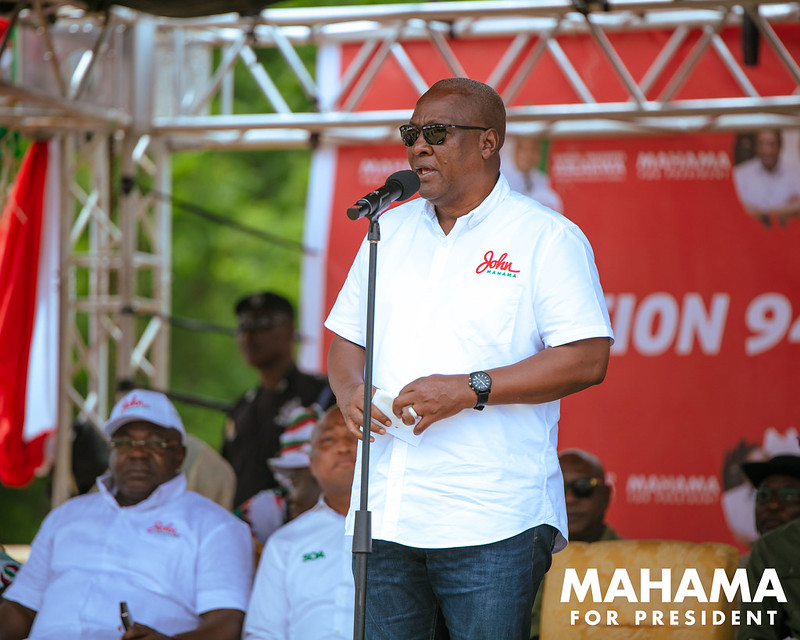

The Ashanti Regional Chairman of the New Patriotic Party (NPP), Bernard Antwi Boasiako, widely known as Chairman Wontumi, has launched a fierce verbal attack on former President John Dramani Mahama, accusing him of harbouring a personal vendetta against certain individuals in the Ashanti Region.
Wontumi's reactions come after Mahama who is leading the the National Democratic Congress (NDC), in the 2024 general elections attributed the recent drought in the northern part of Ghana to illegal mining activities and the destruction of farmlands.
Speaking at the launch of the NDC's manifesto at the University of Education, Winneba on Saturday, August 24, 2024, Mahama pledged to address illegal deforestation and galamsey, which he believes are contributing factors to the environmental challenges in the region.
He said We are going to close the forest reserves and get all those Akonta Mining and all of them who have desecrated our forest reserves. We are going to march them out of the forest reserves. Some of those trees in the forest reserves are 700, 800, and 1000 years old and just because you want to take a little gold from there, you go and destroy the whole forest reserve.

However Chairman Wontumi disagreed and argued that the difference between illegal mining and legitimate mining is documentation, and for a businessman of his calibre, acquiring legal documents is not a problem.
Can you push Wontumi? Even illegal and legal what is the difference? The difference is a document. So, as a veteran miner, I don’t know how to get documents done? Wontumi quizzed.
Wontumi who doubles as the CEO of Akonta Mining said Mahama's aim for contesting the election was to avenge his enemies.
You want to win to avenge your enemies…anything concerning Ashanti, you don’t like it, he added.
Northern Ghana is facing an escalating food crisis due to a severe drought that has decimated crop yields across the region.
The situation has prompted the government to take drastic measures by banning the export of key staples, including rice, corn, and soybeans, in a bid to ensure domestic food security.#
Read Full Story










Facebook
Twitter
Pinterest
Instagram
Google+
YouTube
LinkedIn
RSS